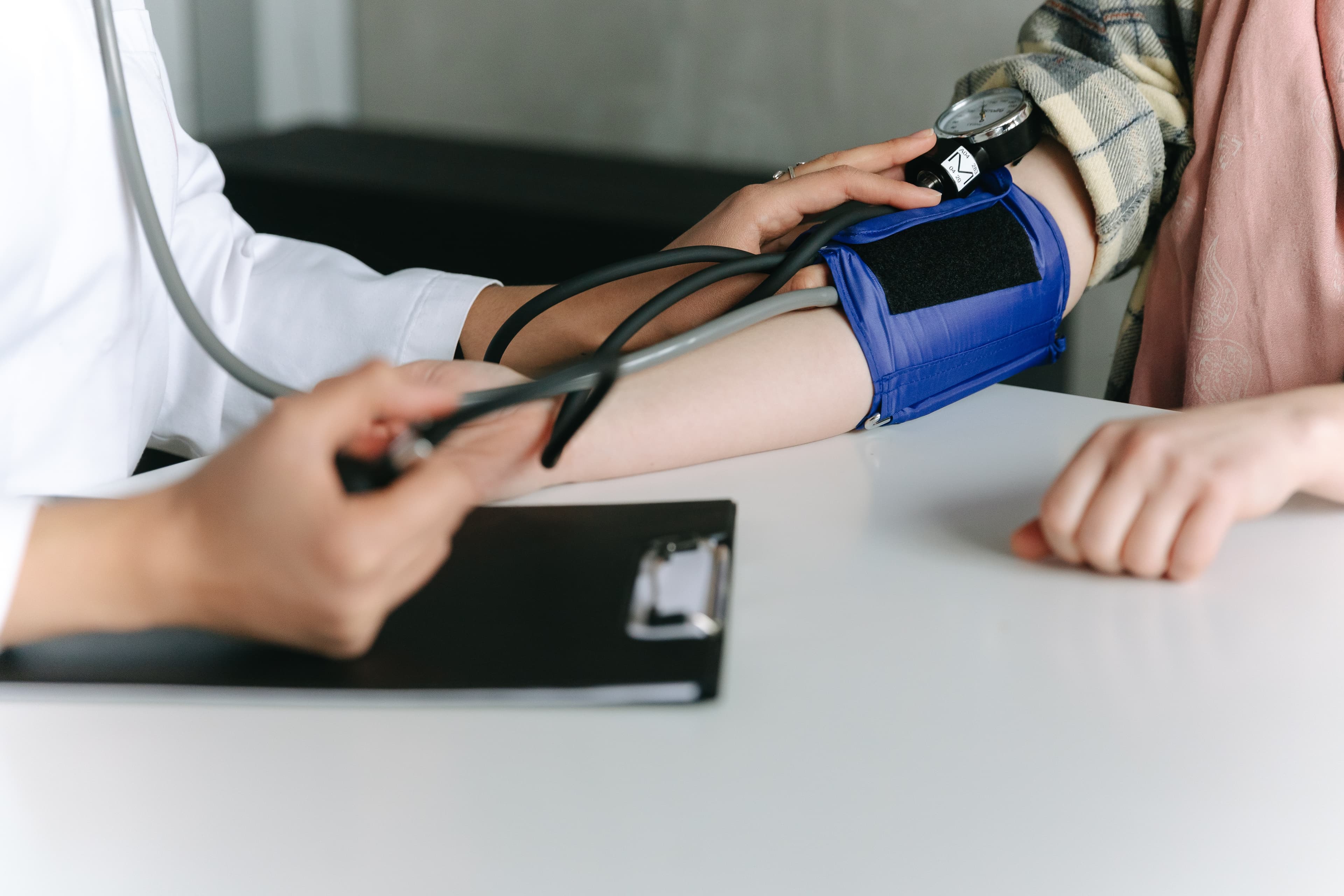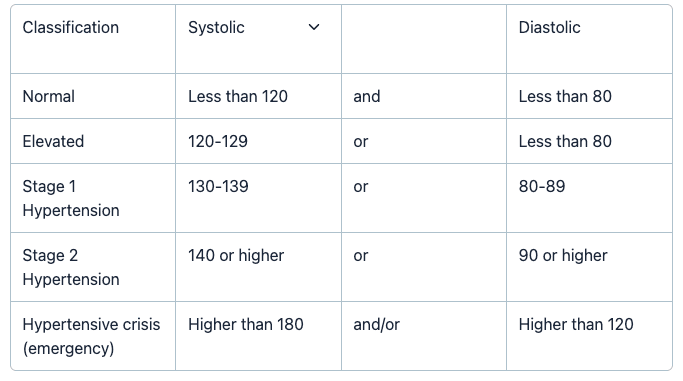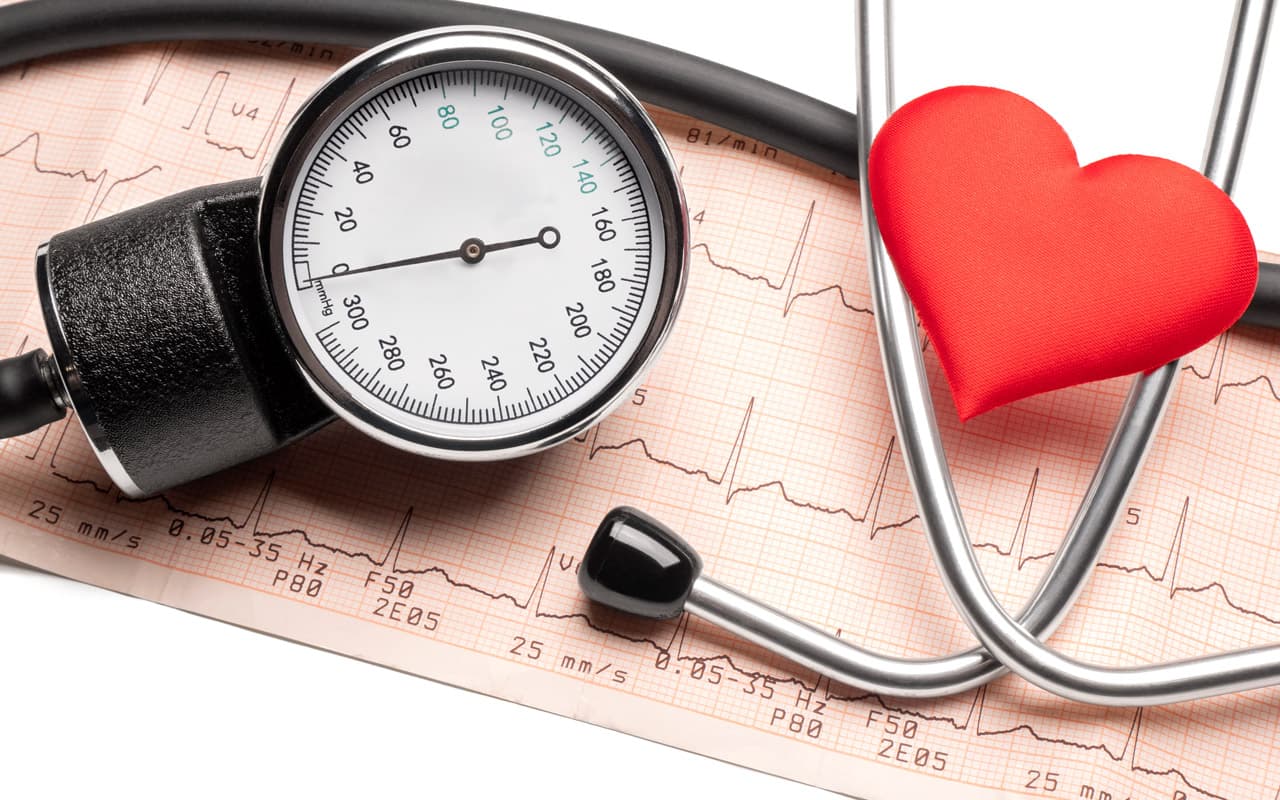High Blood Pressure in Seniors: What it Means and What To Do About It

Written by Chad Birt on Sun Nov 06 2022.

High blood pressure (hypertension) affects up to 70% of adults ages 65 and older, according to The US National Health and Nutrition Examination Survey (NHANES). Though very common, the condition rarely has noticeable symptoms, so it’s essential to know the signs and check your blood pressure.
Although there’s no cure for high blood pressure, healthy lifestyle changes, prescription medication, and daily monitoring can prevent it from worsening. In this article, we discuss the causes of high blood pressure, highlight some of its risks, and offer suggestions to prevent it from leading to more severe complications.
What is high blood pressure?
High blood pressure means the force of the blood pumping through your arteries remains consistently elevated for months or even years. A blood pressure reading has two numbers and is measured in millimeters over mercury (mm/Hg).
The top number (mm) measures your systolic blood pressure or the force your heart exerts when beating. The bottom number (Hg) measures your diastolic blood pressure or the force of the blood against your arteries in between beats.
Here’s a closer look at healthy and unhealthy blood pressure ranges, according to theAmerican Heart Association:

What causes high blood pressure?
High blood pressure is a common side effect of two heart-related health problems: arteriosclerosis and atherosclerosis.
“Arteriosclerosis is when our blood vessels harden and thicken. This change prevents the vessels from contracting and widening when blood circulates and increases pressure within the blood vessels,” said Stacie Detmer, MSN, RN, FNP-C, a family nurse practitioner and internal medicine specialist with Drug Genius, a website that provides users with reliable, evidence-based information about prescription medications.
“Atherosclerosis or blood vessel narrowing is another contributing factor. This is a narrowing within the blood vessels caused by plaque buildup. It’s more common in smokers and people with chronic conditions, such as high cholesterol and diabetes.”
What’s a normal blood pressure reading for someone 65 or older?
According to the American Heart Association, a normal blood pressure reading for someone 65 or older is between 100/60-120/80 mm/Hg. But that’s just an average.
“Depending on your overall health and your risk of falling, this number may change,” Detmer said. “It’s important to ask your primary care provider what your specific blood pressure goal should be.”
Does high blood pressure (hypertension) increase the risk of other health problems?
Yes. High blood pressure causes your blood vessels to harden and narrow, affecting the circulation throughout your body.
“For your organs to function properly, they rely on good blood flow, and these changes impair that process,” Detmer said. “People who have had high blood pressure for a long time or have uncontrolled blood pressure are also more likely to experience coronary artery disease, heart attack, congestive heart failure, abnormal heart rhythms, dementia, strokes, kidney disease, and peripheral arterial disease (PAD).”
How can I help an elderly loved one lower their high blood pressure?
If you provide care for an elderly patient, there are several things you can do to help lower their blood pressure. Detmer suggests:
Controlling their chronic conditions
People with conditions like diabetes and chronic kidney disease have a higher risk of developing high blood pressure. Taking prescribed medications, attending regular checkups, and avoiding alcohol can help keep their heart healthy.
Encouraging them to live a healthy lifestyle
“One of the easiest ways to maintain normal blood pressure is by taking good care of yourself,” said Detmer. “Medication compliance, eating a low sodium diet, and exercising regularly can all reduce the risk of heart disease. It’s also important to speak with your primary care provider to know where your goal blood pressure, A1C, and cholesterol levels should be.
Quitting smoking
Every time you smoke a cigarette, cigar, or pipe, it causes a brief spike in blood pressure. Smoking also damages the walls of your arteries, making your heart work harder.
“If you smoke, it’s imperative to eliminate nicotine,” Detmer said. “I can not say this enough. Eliminating nicotine significantly reduces the risk for a heart attack or stroke.”
Regularly monitor their blood pressure
Over-the-counter blood pressure gauges are affordable and accurate. Plus, if you have one at home, you can avoid trips to the grocery store, doctor’s office, or pharmacy.
“Monitoring your senior’s blood pressure at home once daily is recommended if they have a heart-related health problem,” said Detmer. “If they take medications for their heart, then I would check their blood pressure twice daily. It’s beneficial to you and your loved one to be involved and active in their care.”
Struggling to Choose a Blood Pressure Gauge? We Can Help!
If you care for someone 65 or older, make sure you have an accurate blood pressure gauge at home. Checking your care recipient’s blood pressure once or twice a day can alert you to changes and help determine if current medications and dietary changes are working.
Have questions about blood pressure gauges? We’ll be happy to assist! Our friendly Care Specialists speak English and Spanish and can help you determine which product will best meet your budget and needs. Call us at (800) 696-CARE or email support@carewell.com.
Other Articles You May Like

Tips for Getting the Most Out of Your Next Telehealth Visit
If you're 65 or older or experience mobility issues, attending in-person medical appointments can be a hassle. Telemedicine provides a quick and convenient way to access care, but it's crucial to prepare in advance. Here are our top tips for getting the most out of your next telehealth visit:
Read More >
Best Products to Manage Your High Blood Pressure of 2025
High blood pressure affects people of all ages, but it's especially common in seniors. One study, conducted by the U.S. Centers for Disease Control and Prevention (CDC), found that more than 63% of Americans aged 60 and older have hypertension.
Read More >
Chad Birt is a freelance medical writer who resides in Astoria, Oregon. When he isn't behind a keyboard, you can find him hiking, camping, or birdwatching with his wife Ella and their two dogs, Diane and Thoreau.